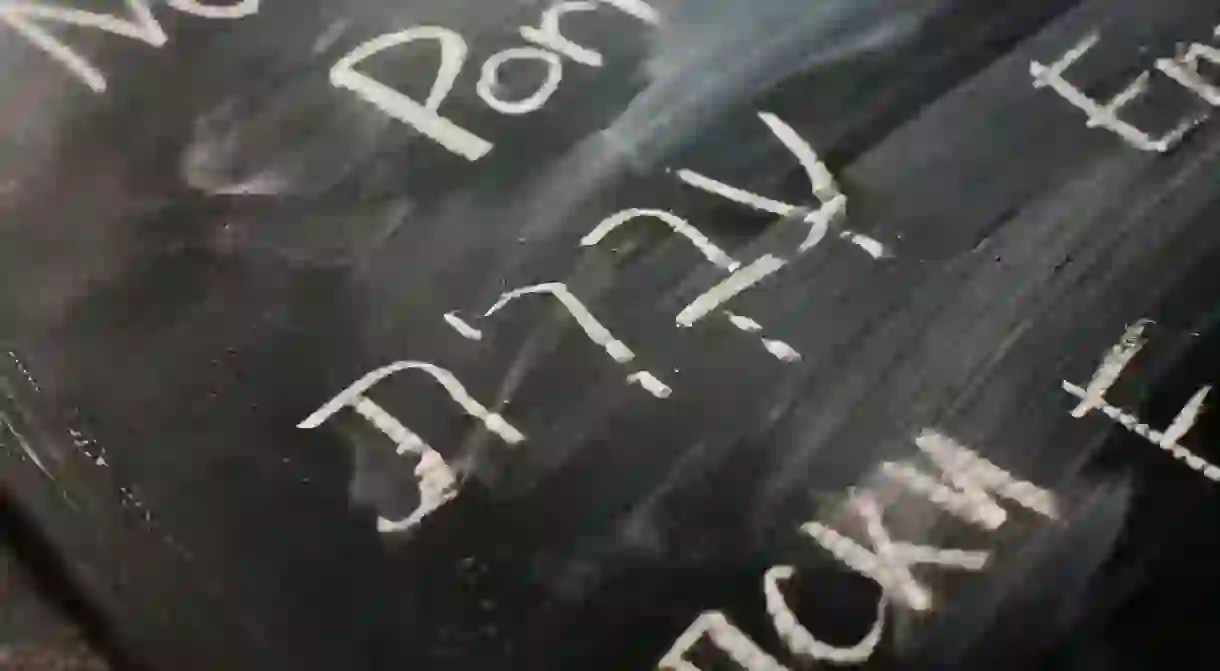Essential Hebrew Phrases to Know

Knowing a few key phrases in the local language can go a long way in terms of experiencing life like a native. And though almost all Israelis can and will speak English, here are the most essential Hebrew phrases and terms you need to know to make the most of your time in Israel.
Did you know you can now travel with Culture Trip? Book now and join one of our premium small-group tours to discover the world like never before.
Shalom ve lehitraot (hello, goodbye, and see you later)
Though a charged word, shalom (shah-LOHM), which also stands for peace, is actually among the most common in the Hebrew language, and can mean both hello and goodbye. The word “bye” is also used in Hebrew language, but if you really want to make an impression try: Shalom ve lehitra’ot (leh-hit-rah-‘OHT) — goodbye and see you later.

Boker tov / layla tov (Good morning / night)
Israelis are big on greetings, and a “good morning” — or boker tov (BOH-ker TOHV) — can go a long way. At night, laylah tov (LIGH-lah TOHV) is goodnight.
Toda, bevaskasha, sliha (thanks, you’re welcome, sorry/excuse me)
To say thanks, a simple toda (toh-DAH) will do. To ask for something you can use bevakashah (be-vah-kuh-SHAH) as please, which also serves as your go-to word “welcome”. For excuse me or sorry, sliha (slee-KHAH) serves as both, much like in English.
Ma kore? Ma nishma? (What’s up?)
A common greeting that is also a useful phrase is “what’s going on” or “what’s new??” in Hebrew language: mah koreh (mah kor-EH), literally “what is happening?” Mah nishma (mah nish-MAH) is a good alternative, literally “what do you hear”, the phrase is used to ask “what’s new?” If you really want to impress, go for the shortened slang version: Mah nish’?
Lo hevanti (I don’t understand)
I’m sorry, can you say that again? Or in Hebrew: Lo hevanti (loh he-van-TI), literally “I didn’t understand”.
Mamash, legamrey (totally, absolutely)
If you want to affirm that you understand or agree, then like in English, “totally” — or legamry (le-GHAM-rey) — is the cool way to go. A good alternative is the Hebrew word for “really” — mamash (MA-MA-sh) — which also serves as slang for an affirmative.
Ata medaber anglit? (Do you speak English?)
This is a bit tricky because the phrasing depends on whether you are addressing a man, a woman, or a group including both. For the masculine, say: Ata medaber anglit? (AH-TA meh-DA-ber an-GLEE-teh). For the feminine: At medaberet anglit? (at meh-DA-ber-et an-GLEE-teh). And for a group: Atem medabrim anglit? (AH-tehm meh-DA-brim an-GLEE-teh). The key word here is English – “anglit” (an-GLEE-teh).

Eyfo ha’sherutim? (Where’s the restroom)
At times the most important of questions, here’s how you say “where’s the restroom?” in Hebrew: Eyfo ha’sherutim? (Ay-FOH HA-che-ruh-tim).
Ma tov can? / ma taim can baezor? (What’s good here? / What’s good to eat here in the area?)
Asking locals for recommendations will almost always lead to good surprises, especially in Israel were people love being asked their opinions on just about everything.
A good way to know the Israeli food culture is the phrase: Ma tov can (MAH tov CUN). This is a great way to ask “what’s good here?” as in: what dish do you recommend at this restaurant? Or you can ask for general recommendations about what’s good to eat here in the area: ma ta’im can baezor (MAH TA-eem CUN BA-es-OHR).

Mana ahat bevakasha (I’ll take one please)
Hummus, falafel, sabich… if you want “one serving, please” say: Mana ahat bevakasha (MAH-NA EH-hut BE-VA-KAH-SHAH).
Hetzi Goldstar ve chaser bevakasha (Half a liter of Goldstar and a chaser, please)
What’s more classic than a cold local Goldstar beer with some Israeli friends at night? Topping it off like the locals with a “chaser” – a Hebrewized word denoting a small shot of hard liquor, anything from whiskey to local arak, that “chases” your beer. So be a true Tel Avivi and order a “half a liter of goldstar and a chaser, please”: Hetzi Goldstar ve chaser bevakasha — the key words here are “HE-tsi” (or half, as in half a liter of beer) and BE-VA-KAH-SHAH (please).













